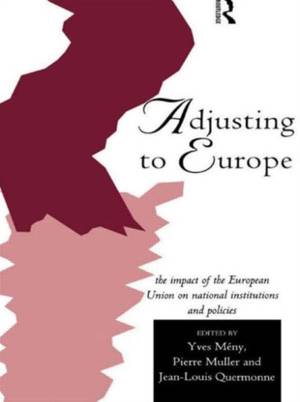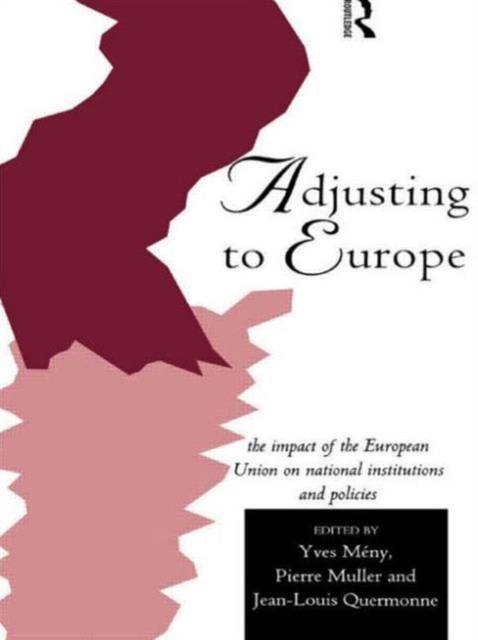
Bedankt voor het vertrouwen het afgelopen jaar! Om jou te bedanken bieden we GRATIS verzending (in België) aan op alles gedurende de hele maand januari.
- Afhalen na 1 uur in een winkel met voorraad
- In januari gratis thuislevering in België
- Ruim aanbod met 7 miljoen producten
Bedankt voor het vertrouwen het afgelopen jaar! Om jou te bedanken bieden we GRATIS verzending (in België) aan op alles gedurende de hele maand januari.
- Afhalen na 1 uur in een winkel met voorraad
- In januari gratis thuislevering in België
- Ruim aanbod met 7 miljoen producten
Zoeken
Adjusting to Europe
The Impact of the European Union on National Institutions and Policies
€ 119,45
+ 238 punten
Omschrijving
The European Union is paradoxical: it is not a state, yet it performs many traditional functions of the state. Its regulatory powers are immense but its redistributive functions are negligible; its decisions penetrate all aspects of economic and social life, yet Brussels has no local administration or tribunals, no controllers capable of guaranteeing the correct and faithful implementation of the regulations or objectives which frame European policies. Adjusting to Europe explores the means through which this paradox is confronted. It examines the nature and modalities of policy-making at Community level and discusses the implications of the specific nature of European institiutions for bargaining group mobilization and policy style. It then studies how the three major nation states have adjusted their policy processes and institutions to the European challenges. Finally, it considers the impact of community decisions in three areas: industrial, competition and social policy.
Specificaties
Betrokkenen
- Uitgeverij:
Inhoud
- Aantal bladzijden:
- 194
- Taal:
- Engels
- Reeks:
Eigenschappen
- Productcode (EAN):
- 9780415144094
- Verschijningsdatum:
- 14/11/1996
- Uitvoering:
- Paperback
- Formaat:
- Trade paperback (VS)
- Afmetingen:
- 142 mm x 215 mm
- Gewicht:
- 240 g

Alleen bij Standaard Boekhandel
+ 238 punten op je klantenkaart van Standaard Boekhandel
Beoordelingen
We publiceren alleen reviews die voldoen aan de voorwaarden voor reviews. Bekijk onze voorwaarden voor reviews.








